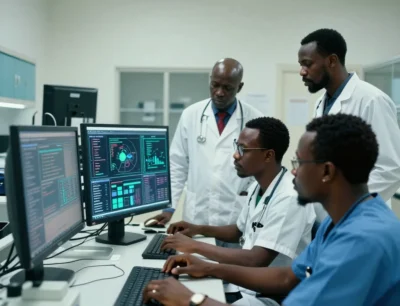Beyond Telehealth: How AI Is Powering the Next Era of Health Innovation
OpenAI and Anthropic just entered the digital-health race. Discover how their AI tools are transforming care, patients,
Notice: Test mode is enabled. While in test mode no live donations are processed.

OpenAI and Anthropic just entered the digital-health race. Discover how their AI tools are transforming care, patients,

AI is helping drugmakers speed up clinical trials and regulatory submissions—cutting delays and getting treatments to

Gates and OpenAI launch Horizon1000 to bring AI to 1,000 African clinics — expanding healthcare access through locally
